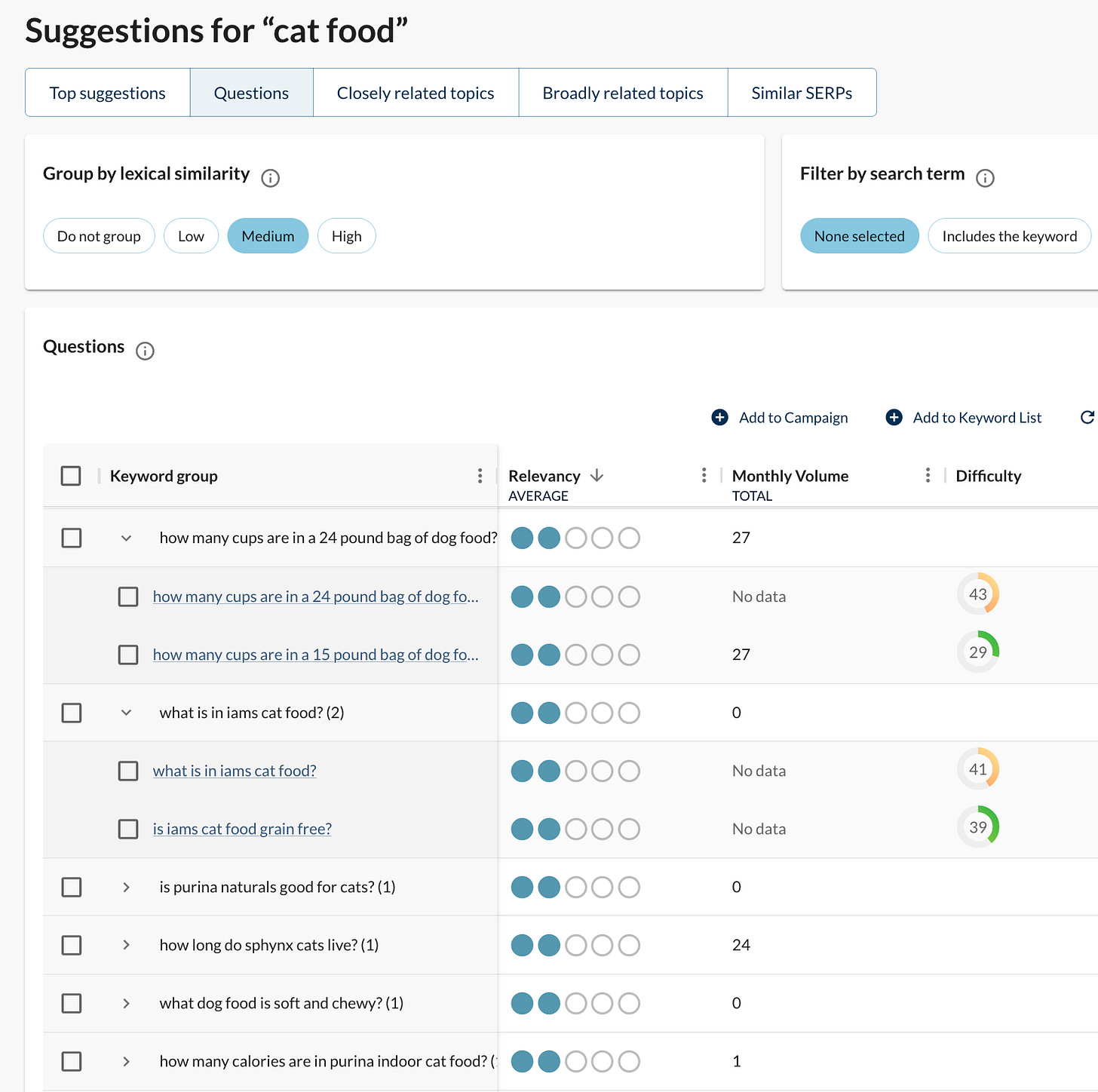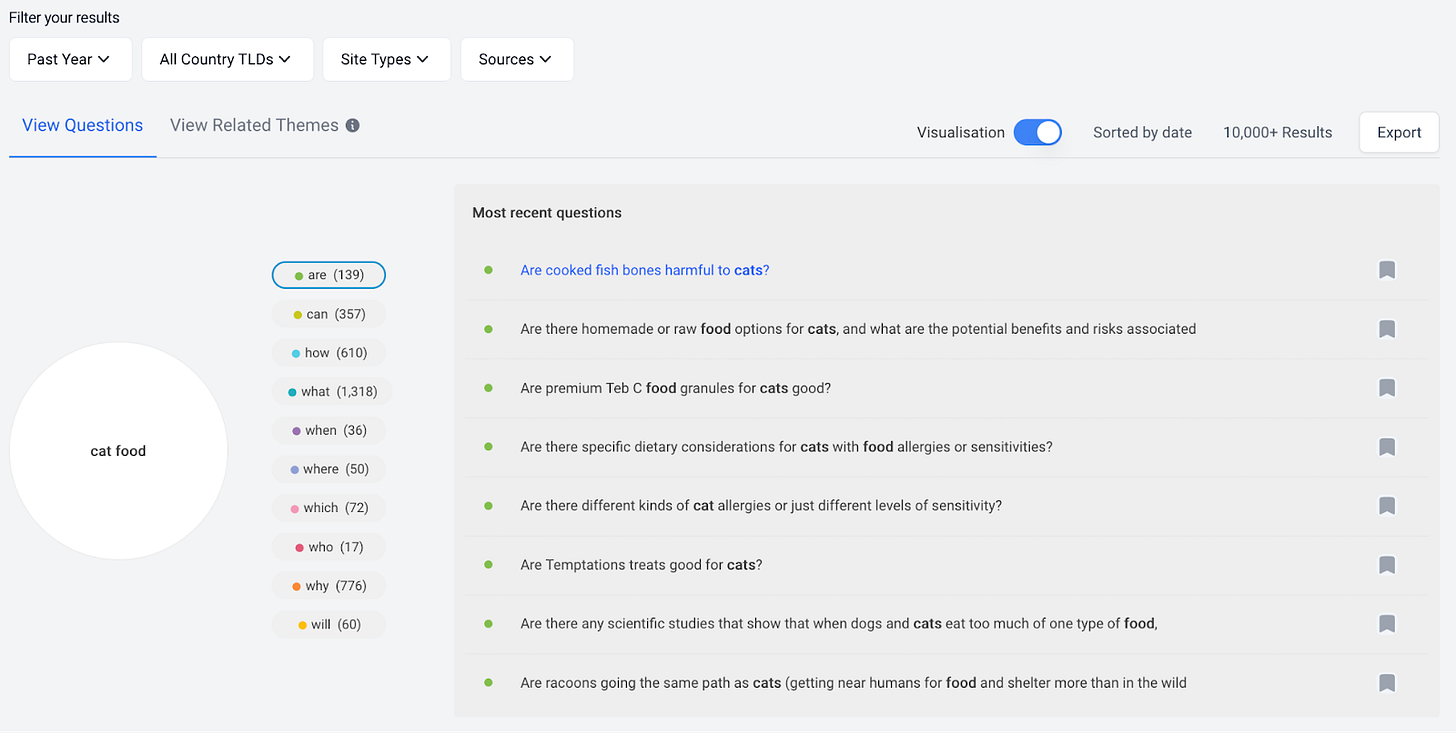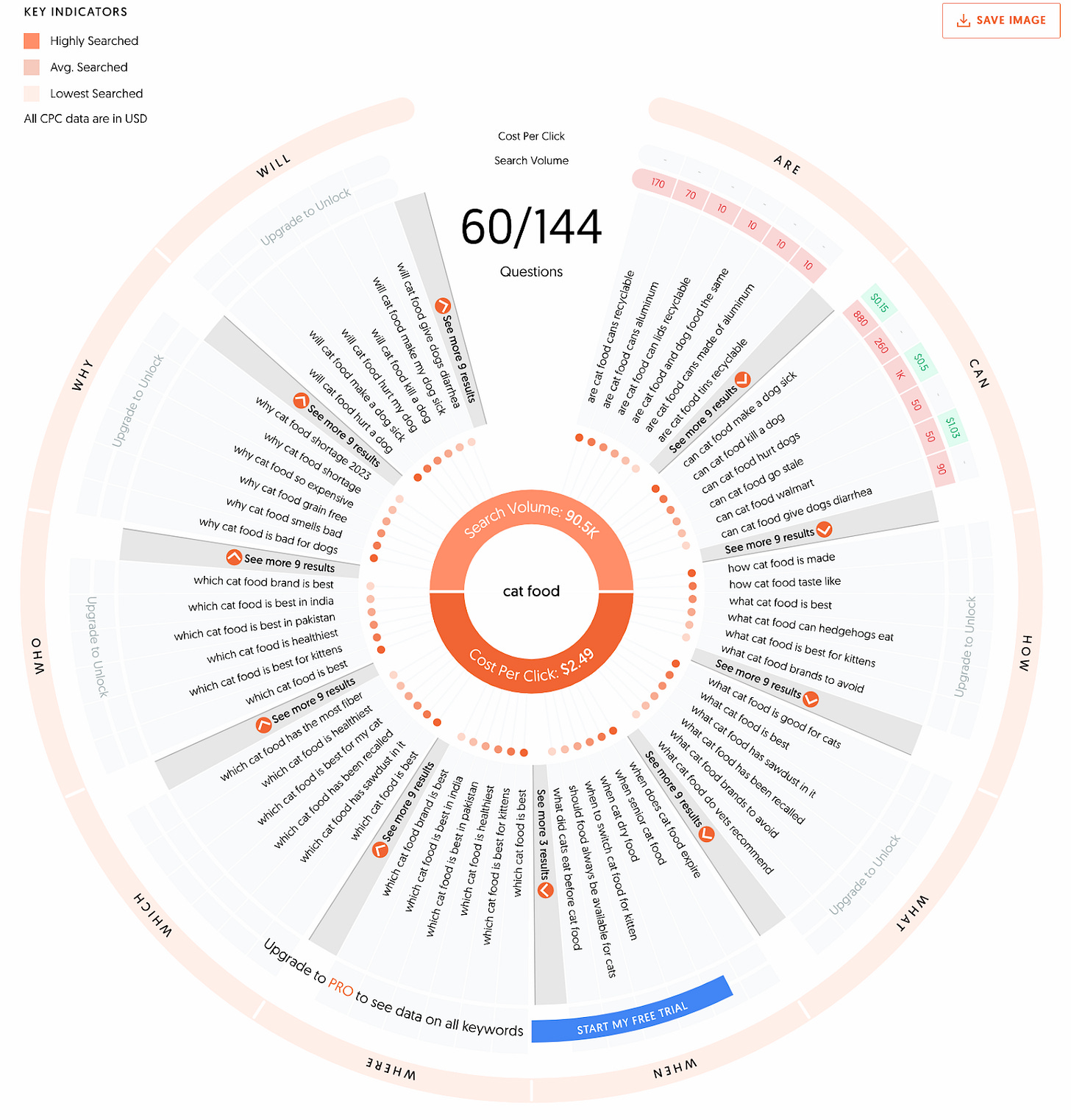Google's Answer Engine: Question Research in the Age of AI Overviews
Google has long been shifting focus from a search engine to an answer engine. Here's how you can research niche questions 👇
“Google is no more a search engine, it is an answer engine”
This has been said a lot lately.
The truth is, this trend is nothing new.
👉👉👉 Join us Wednesday 1 PM est on the LIVE stream to discuss this topic (no registration required). You can join me on Linkedin or Twitter!
Google has been trying to become an answer engine for at least 5 years or more. Back in 2020, I wrote an article on that and I am pretty sure I had been writing about this years before that (just too lazy to find them).
Here’s my slide from 2018 Pubcon presentation:
Yes, this trend has been reinforced by generative AI as people are getting trained to ask questions instead of typing a keyword.
Yet, question research and optimization have been an important part of SEO strategies for quite some time.
With Google’s AI Overviews going public, question research is going to be even more important because Google is more likely to generate AI overviews for longer queries that are phrased as questions.
Giving a concise and satisfying answer to a searcher’s question has long been a low-hanging opportunity to get featured. Now it is also an easy way to get referenced from AI overviews.
There is also much more to the question research strategy, beyond optimizing for that specific search feature:
Optimize your content for the “conversational search” (i.e. when people talk to their mobile devices to initiate search)
Optimize for AI-powered searches (people usually type full questions into ChatGPT and alternatives)
See your target keywords in a broader, more relatable context
Generate content ideas by understanding your target audience's pain points, etc.
Here are a few tools that can help you find more questions people ask when researching your topic:
1. Moz
Moz is rolling out a new keyword explorer tool that includes an improved question research functionality. The best feature of that tool is grouping keywords by “lexical similarity.”
You can choose “low,” “medium,” and “high” similarity. The lower the similarity, the less relevant questions inside each group are going to be.
For the sake of an experiment, I used the “medium” filter (see the screenshot below). The questions inside each group could totally be covered within one page of content, so I found that feature very useful:
2. Semrush
Semrush has the “Questions” filter inside the “Keyword Magic” section. When researching your keywords, use the “Questions” filter to find keyword-based questions sorted by their search volume. The left-hand panel lists keyword modifiers that appear in questions:
3. AlsoAsked
AlsoAsked extracts questions from Google’s “People Also Ask” boxes. It provides further questions that will show up if you search for any of those questions in Google:
The basic search is available for free, no registration is required. If you want to go deeper (i.e. see more questions triggered by more searches), you will need to upgrade ($12 a month).
4. Buzzsumo
Buzzsumo’s “Question Analyzer” pulls popular questions from Quora, Reddit, and niche forums. You can pick your data sources by domain. The questions are categorized by the question word:
You can adjust the time frame to find more recent threads (past 24 hours, past week, past month, etc.)
Check out semantically relevant topics to find more keywords to research questions for.
5. Answer The Public
Answer The Public extracts questions from Google, Youtube, Bing, and Amazon Autocomplete (Autosuggest) results. Like Buzzsumo, questions are categorized by the question word. You can also see the search volume and CPC for each question.
Obviously, your customers are going to be the biggest source of this type of research. Listen to your customers and make sure to solve their problems on your site (product pages, landing pages, blog posts, etc.) However, these tools are helpful for matching your customers’ insights with SEO data for better organic search discoverability.
Let me know if you are aware of more tools to research questions!








